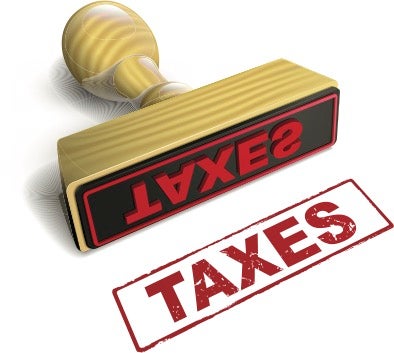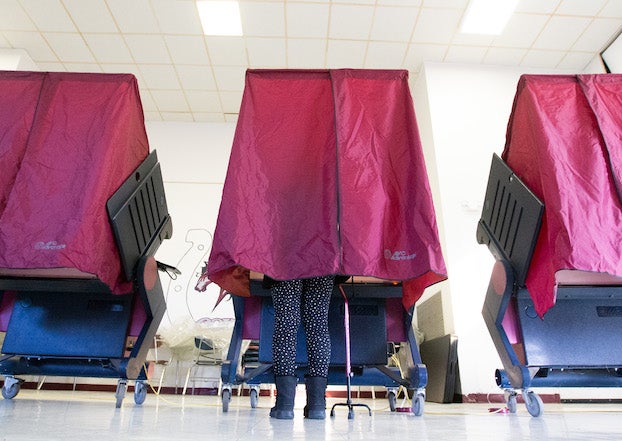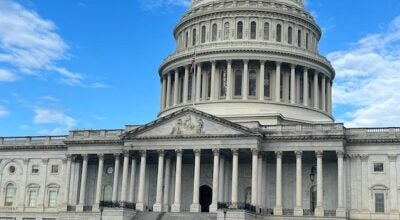Jim Beam column:Amendments great tax reform
Published 7:45 am Thursday, September 30, 2021

- Louisiana voters will decide the fate of great tax reform measures on Nov. 13. Metro Creative Graphics
Constitutional Amendment No. 2 on the Nov. 13 Louisiana ballot is like Amendment No. 1. Both are described by the Public Affairs Research Council of Louisiana as “weighty tax reform proposals.”
The Council for a Better Louisiana, another non-partisan organization, says the two amendments “are common sense improvements that CABL, PAR and other non-partisan policy groups have advocated for years.”
CABL adds, “Passing Amendment No. 2 is an opportunity to uncomplicate our tax structure, put the state in charge of its own fiscal house and enhance Louisiana’s competitiveness for the jobs of the future.”
The amendment asks each voter, “Do you support an amendment to lower the maximum allowable rate of individual income tax and to authorize the Legislature to provide by law for a deduction for federal income taxes paid?”
If voters approve Amendment No. 2, three companion statutes approved by wide margins in both the state House and Senate during the 2021 regular legislative session become effective. All are explained in the “PAR Guide to the 2021 Constitutional Amendments.” It is available at parlouisiana.org.
Act 395 would eliminate the federal tax deduction for state individual income tax filers and offset the break with lower individual income tax rates in each bracket. PAR said only Alabama and Louisiana have a full deduction for federal taxes paid and Iowa just got rid of it.
Single tax filers are currently paying a tax of 2 percent on their first $12,500 of net income, 4 percent on the next $37,500 and 6 percent on net income in excess of $50,000. The incomes are doubled for joint tax filers.
Passage of Amendment No. 2 would reduce those percentages to 1.85 percent, 3.5 percent and 4.25 percent. If income tax collections turn out to be higher than expected, those rates could be lowered even more.
PAR said by going to the 4.25 percent top rate, Louisiana would have the lowest top income tax rate except for South Dakota and the nine states that don’t have an income tax.
Act 395 also removes the constitutionally mandated federal income tax deduction and limits excess itemized deductions to include only medical expenses. CABL said in its simplest terms, the amendment swaps out or changes income tax deductions we currently have in exchange for lower income tax rates for everyone.
The changes are revenue neutral, which CABL said “means it is neither a tax cut nor a tax increase in terms of state revenues.” The council adds that the vast majority of taxpayers will see a small tax cut or virtually no change at all.
Act 396 makes changes to corporate income taxes. Corporations would also lose their ability to deduct federal income taxes paid in exchange for lower income tax rates.
Act 389 deals with the corporate franchise tax, which most states don’t have. It is a business tax on retained earnings and investment capital that hampers the effort to attract industry to Louisiana. The act would eliminate the tax for small businesses that make up more than 80 percent of the tax base and reduce the rate for other businesses.
The Louisiana Legislative Fiscal Office said the overall impact of the full package of individual income and corporate tax changes in Amendment No. 2 would be roughly revenue neutral for about two years and then would reduce taxes by approximately $27 million annually by fiscal year 2025.
PAR said in arguments for Amendment No. 2 that it is true tax reform and is long overdue in Louisiana. It adds, “The package would create a more fair and stable tax system that would encourage in-migration, job creation and business investment.
“Moving our upper individual income tax rate from approximately 18th highest to the 40th highest in the nation will do wonders for Louisiana’s image.”
Those against the amendment would argue that federal deductions should be kept and that state government already has too much revenue. Others say income taxes should be raised and state sales taxes lowered, but Republicans who control the Legislature don’t agree.
Louisiana’s 4.45 percent state sales tax is not excessive. Adding local sales taxes averaging 5 percent that were approved by local voters to the state sales tax is what gives the state the highest sales taxes in the country.
Amendments 1 and 2 give Louisiana the tax reforms it has needed for decades. What a shame it would be to lose this golden opportunity to enhance the business image of a state that we all call home.





